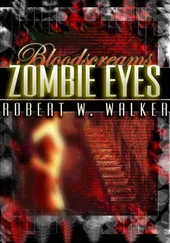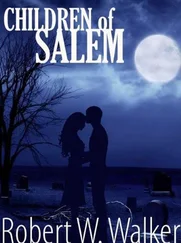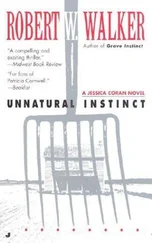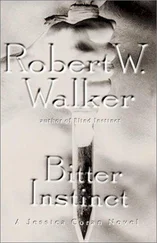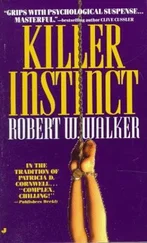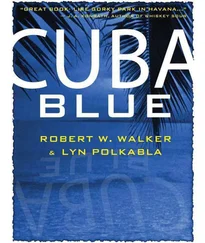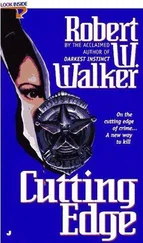Robert Walker - Final Edge
Здесь есть возможность читать онлайн «Robert Walker - Final Edge» весь текст электронной книги совершенно бесплатно (целиком полную версию без сокращений). В некоторых случаях можно слушать аудио, скачать через торрент в формате fb2 и присутствует краткое содержание. Жанр: Полицейский детектив, на английском языке. Описание произведения, (предисловие) а так же отзывы посетителей доступны на портале библиотеки ЛибКат.
- Название:Final Edge
- Автор:
- Жанр:
- Год:неизвестен
- ISBN:нет данных
- Рейтинг книги:3 / 5. Голосов: 1
-
Избранное:Добавить в избранное
- Отзывы:
-
Ваша оценка:
- 60
- 1
- 2
- 3
- 4
- 5
Final Edge: краткое содержание, описание и аннотация
Предлагаем к чтению аннотацию, описание, краткое содержание или предисловие (зависит от того, что написал сам автор книги «Final Edge»). Если вы не нашли необходимую информацию о книге — напишите в комментариях, мы постараемся отыскать её.
Final Edge — читать онлайн бесплатно полную книгу (весь текст) целиком
Ниже представлен текст книги, разбитый по страницам. Система сохранения места последней прочитанной страницы, позволяет с удобством читать онлайн бесплатно книгу «Final Edge», без необходимости каждый раз заново искать на чём Вы остановились. Поставьте закладку, и сможете в любой момент перейти на страницу, на которой закончили чтение.
Интервал:
Закладка:
Meredyth continued speaking in a level voice. "Frankly, almost all of the women that I helped in my year of internship with the legal system didn't really have any options, hooked as they were on drugs."
"You spent a year at this social work requirement?"
"Well, two college terms, eight credit hours, a fall and a spring."
"And how long ago was this?"
"It was like two freaking decades ago, 1983…'84 may be."
"Given the fact the killer has pointed us to the convent, we need to look over the records of your cases that year."
"The case files should be on record with the courthouse downtown. I have no idea what sort of records we'll find at the orphanage or what condition they will be in, but my name isn't likely to be on anything there."
"And you spent no time at the convent school?"
"Like I said, my job ended at the courthouse steps. The children were taken by the nuns from the judges' chambers."
Lucas wondered aloud, "How many kids are we talking about, Mere?"
"A handful…a dozen at most that I handled, certainly no more."
He pulled the car over and parked outside a Starbucks. "How about a cup of coffee and a grain of truth?" he asked.
"All right, I'll tell you about it."
Lucas and Meredyth sat at a table inside the coffee shop and watched the drizzling rain against the windows. Tentatively sipping at her steaming coffee, Meredyth began her story.
"A terrible situation had evolved in the seventies and into the eighties, when I started this internship-against the wishes of my parents, I might add. I was more surprised than anyone when I found myself making life-and-death decisions for drug abusers and their children."
"Were they all drug abusers?"
'To a woman, yes. Heroin, cocaine…hard-liners, most of them, their arms full of tracks, their noses pink red. I despised them, Lucas, for what they did to their babies. I was unable to have children, am unable to have children, Lucas. Something you have a right to know."
He reached across and took her hands in his. "Go on."
"And here these women were, slaves to addiction, giving no thought to how they were harming their children's health, poisoning their unborn children. I took it all quite personally, and it wasn't long before I knew I couldn't do this kind of work objectively."
"You were just a kid, Mere."
"It was a time of rampant drug use among pregnant teens. This created so many thousands of crack mothers having crack babies. These typically single-parent mothers were unable to fend for themselves, much less take care of a sick child's multiple needs." Meredyth paused to drink her cooling coffee.
Lucas picked at a giant cinnamon bun he'd placed between them to share. He said nothing, but she felt a disapproving coolness had come over him, something in his eyes, a judgment.
"Look, Lucas, organizations and high-minded institutions-"
"Like the Harris County court, the government, the Catholic Church?" he finished for her, interrupting.
"Yeah, like the Church…they took an interest in helping the children, many of whom were born with mental and emotional problems, some with serious, irreversible damage and retardation. Few doors were open to them, and there weren't a lot of people or resources to throw at the problem."
He sipped at his coffee to the sound of FM music piped in, a Gordon Lightfoot tune…don't you come creepin' round my back stair…and angry words rising from another booth in the cafe. Lucas glanced at the couple arguing. Something deep within him wanted to go over and yank the man to his feet and plant a fist in his face. Instead, when Meredyth squeezed his hands, he returned his attention to her. "Go on. I'm listening."
"The orphanages were filling up with many thousands of such children, and Our Lady and other such homes opened their doors wide. They were constructing more housing! We took advantage. Here was hope, a chance to find decent homes for them."
"Or a lifetime in orphan care."
"I always believed it the lesser of two evils as did the lady I worked for, as did the system."
"Your ever think of adopting one of them yourself?"
"There was one, yes. She had no name, Lucas. Her mother hadn't given her a name. I thought that so sad."
"That is sad."
"I assume because the mother didn't want to get attached, knowing she was giving the little girl up. She'd made that decision before I even got involved. But I was a kid in college myself, my plans laid out, my days and nights filled. Her mother pleaded with me to find her a good home. I did what I could and went on to fulfill my dream to become a forensic psychiatrist. I just wanted to earn my degree, go on to help people."
"Like these destitute, addicted women who had no chance of ever getting their children back, right?"
"There were programs in place, rehab programs, but for most"-she grimaced and shook her head-"the program was an impossibility until they broke the cycle of loss of identity, loss of self-esteem, loss of direction, values, faith."
He remained stone-faced, his Indian features impossible to read.
"Whatever you're thinking, Lucas, don't condemn me for what we did for those children back then. We did what we had to do. Nobody wanted to deal with the problem."
"Anyone think to keep records on these children? To see how they did one, two, three years later?"
She shook her head. "We're talking about sick children. The fact we found orphan homes willing to take them was reason for celebration."
"And no one kept trace of the crack mothers, right?"
"Correct." Her long face dropped. The noise level at the other booth had continued to rise. Lucas glared at the couple, realizing now that the woman had an infant in a little plastic carry on the seat beside her. Take it to the Maury Povich Show, he wanted to shout, but kept his calm.
Lucas thought of the thousands of Native American children who, in the early part of the 20th century, had been ripped from their parents by state welfare systems across the West-placed in "good" white homes by well- meaning white officials anxious to Christianize and Anglicize these heathen children. It was nowadays considered one of many disgraceful episodes in U.S.-Indian relations sanctioned by the U.S. Bureau of Indian Affairs; it had been a part of the "war" to end once and for all the aboriginal problem of the Native American races, to homogenize, tame, incorporate and blend them into the white race and make farmers of them all. The policy of assimilation of the races had begun as early as the 1820s, with successful results in the peace-loving Five "Civilized" Tribes led by the Cherokee Nation and including the Creek, Chickasaw, Choctaw, and Seminole.
In 1861, when war broke out between the states, the Cherokee Nation had more English-speaking schools and post offices flying the American flag than did neighboring whites in the state of Arkansas, and American Indians formed regiments in both the Federal and the Confederate armies. The Five Tribes fought at Pea Ridge, Arkansas, up and down the Oklahoma Indian Territory, along the Texas corridor, and struggled for control over the Indian Capitol of Tallaqua. Federalist Indian regiment soldiers lost-alongside their Confederate brothers-more casualties per capita in the Indian State than did any other state in the Union or the Confederacy, yet it never appeared in a U.S. history book. No Hollywood film or Ken Burns documentary had ever been made of their heroism, either in the war or as leaders in following the White Path of peace over the Red Path of war against the people who had forced them on to the Long Walk of the Trail of Tears. Only a handful of dust-laden studies and historical treatises on these lost facts dealt with the Indian regiments of the Confederacy and the Union.
After the Civil War, and after the loss of Lincoln as their president, all the civilized Indians of the Territory were punished for the actions of those who sided with the Con-federacy. Five Tribes simultaneously stripped of all the dignity and freedom they had earned as U.S. citizens in their once-proud U.S. Protectorate, not to mention their land and businesses. The president of the Cherokee Nation, John Ross, lost his dream along with his steamboat company, but the tribes had lost the entirety of their treaty lands, seeing them given away to white settlers flooding into the Cherokee Strip to create the state of Oklahoma. Strip was the right word for it. Government-sanctioned, the rape of the Indian Territory was overseen by armed military forces. Then came the sweeping missionary influx and the welfare brigades. And in far too many instances, Native American children were forced to renounce their heritage and very DNA and take on the manner and characteristics, the language and religion of the majority race without any protest allowed beyond the tears shed when they were taken from their loving parents. The biography of such men as Jim Thorpe told the story. In too many cases, these children were taken out of perfectly fine family environments and placed with foster homes, causing the children as adults to be alienated in a white world. Jim Thorpe had beaten the white world at its own game, only to be stripped of his Olympic medals, left in the end depressed and beaten, left to drink himself to death.
Читать дальшеИнтервал:
Закладка:
Похожие книги на «Final Edge»
Представляем Вашему вниманию похожие книги на «Final Edge» списком для выбора. Мы отобрали схожую по названию и смыслу литературу в надежде предоставить читателям больше вариантов отыскать новые, интересные, ещё непрочитанные произведения.
Обсуждение, отзывы о книге «Final Edge» и просто собственные мнения читателей. Оставьте ваши комментарии, напишите, что Вы думаете о произведении, его смысле или главных героях. Укажите что конкретно понравилось, а что нет, и почему Вы так считаете.


